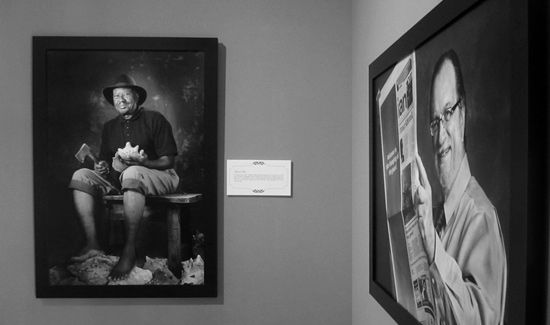
In the years following the collapse of Nazism and Communism much of the West turned its back on its hard-won freedom and voluntarily succumbed to a new dictatorship of relativism that is no less evil than the totalitarian regimes that preceded it. This new tyranny, Pope Benedict XVI tells us, recognizes nothing as being definitive and has the ultimate goal of satiating one’s own ego and desires.
We have seen the contemporary results – the nihilistic yet impeccably democratic legislation that repudiates life itself! I am thinking here of existing, enacted and pending articles of legislation that legalize various drugs, prostitution, contraception, homosexuality, same-sex marriage, abortion, euthanasia, and genetic manipulation.
The Christian response to this atheistic secularism should be to seek the embodiment of natural law in the civil law. Natural law is an expression of the eternal law of the 10 Commandments which are inscribed on all human hearts and is knowable by reason.
St. Thomas Aquinas tells us that everything has a natural end to which it is naturally inclined. The eternal law directs all things and human beings toward their natural and good end.
Our rational nature is inclined toward truth and goodness, both of which, like human nature itself, find their origin and perfection in God. When we consciously pursue truth we use theoretical reason which is anchored in the principle of non-contradiction. According to this principle, something cannot both be and not be at the same time and in the same place. This means that we presuppose an intelligible order in God”s creation that we can discover. The principle of non-contradiction testifies to the existence of the eternal law both within us and around us.
When we consciously pursue goodness we use our moral reason which tells us that good is to be done and evil is to be avoided. Once we discover this second principle we are led to ask: “What is the good that I should do?” The answer is found in our human nature which consists of certain natural inclinations. These are: self-preservation, to have and raise children, to know the truth about God and to live together in society.
When we reflect on the implications of our natural inclinations we discover the primary and universal precepts of the natural moral law which are identical with the Ten Commandments. For example, consider the natural inclination to preserve ourselves. If each of us is inclined to pursue this good, does this not suggest that there are evils that we should avoid? “You shall not murder”.
This inclination teaches us that every human being has a priceless and unique dignity. Contrary to civil law which tends to promote abortion, euthanasia and embryonic stem cell research it teaches that every person is an end in him or herself and never a means to an end. Persons are never to be manipulated or treated as things by other persons.
What about the inclination to have and raise children? “Honour your father and mother.” “You shall not commit adultery.” This second inclination teaches us that marriage means a one-flesh communion of “one husband – one wife – for one lifetime – with openness to children”. Unlike civil law, this inclination tells us that artificial contraception and abortion are not behaviors which someone has a “right” to choose.
What about the inclination to know the truth about God? “I am the Lord your God. You shall have no other gods before me.” “You shall not take the name of the Lord your God in vain.”
This third inclination leads us to affirm the existence of God. There are a variety of ways and valid arguments through which reason arrives at the conclusion that the Creator God exists. In the twentieth century great efforts were made to stop people believing, to make them reject Christ. Political parties, despite their firm democratic credentials, began to demonstrate a growing tendency to interpret the separation of Church and State according to the Communist model whereby the world belongs exclusively to the State. This resulted in a devastation of consciences, with ruinous consequences in the sphere of personal and social morality.
In connection with our inclination to live in society, we arrive at the Commandments “You shall not steal;” “You shall not bear false witness against your neighbour;” “You shall not covet your neighbours wife;” “You shall not covet your neighbour’s goods.”
Unfortunately, because of the effects of original sin we no longer have it within our own power to be fully human i.e to always live up to the natural moral law. However, the natural moral law is the truth about every human being in every place and time. And while it is possible for the natural moral law to be blurred – it cannot be completely abolished in anyone.
Faithful disciples of Christ, therefore, ought to strive to be the best of citizens, even when that duty requires us to disobey those civil laws which conflict with the natural moral law. St. Augustine reminds us that “a law that is not just, seems to be no law at all.”
When we listen to the voice of reason within us, that word, that meaning, is an echo of the Eternal Word whom we saw and heard at the moment of the creation of our soul. The law of reason within us when given unrestricted range cannot arrive at any other truth in the end than the truth of Jesus Christ. He is Risen, His victory is ours. The challenges are difficult but we have every reason, the reason who is Christ Himself, never to give in to discouragement. Our faith in which alone our reason finds total fulfilment, that faith is our sure victory.
Paul Kokoski



